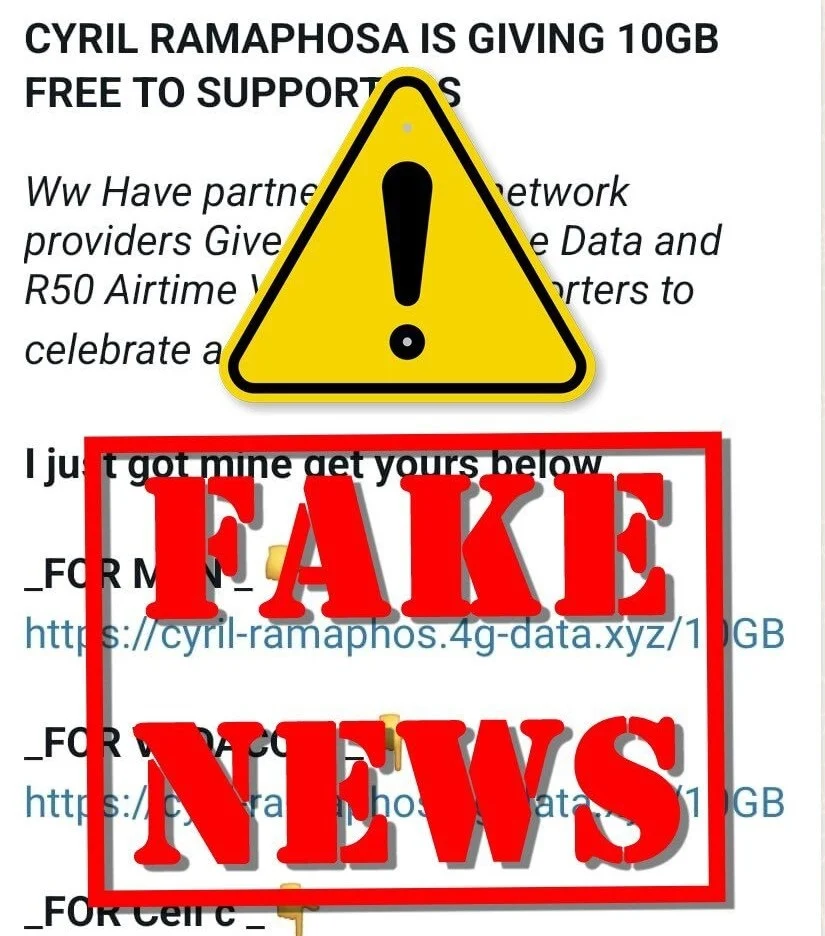According to the DCDT, there has been a surge in fake messages and disinformation circulating online. It is crucial to verify the authenticity of any information before believing or sharing it. In today’s digital age, misinformation spreads rapidly, leading to potentially harmful consequences. It is essential to stay vigilant and cautious when encountering messages or offers that seem too good to be true.
The scam involves messages and links claiming that President Cyril Ramaphosa is offering 10 gigabytes of data to his supporters. These messages typically contain spelling errors and inaccuracies, which can be red flags for discerning users. The scammers prompt users to click on a link related to their mobile network to redeem the offer.
There are several indicators of this scam’s fraudulent nature. Firstly, the link provided is flagged as malicious by multiple security vendors and could potentially contain malware. Secondly, the messages and posts often contain spelling errors and incorrect information, such as misspelling President Ramaphosa’s name. These inconsistencies should alert users to the scam’s illegitimacy.
Clicking on the malicious link could result in malware infecting your device or unauthorized access to your personal information. Malware can cause significant damage to your computer system, compromising your privacy and security. It’s important to understand the potential risks of engaging with scam messages and avoid clicking on suspicious links.
To safeguard yourself from falling victim to scams like this, consider the following precautions:
a. Verify the source: Check the credibility and authenticity of the message or offer. When in doubt, cross-reference the information with reliable sources or official announcements.
b. Be cautious of spelling errors and inconsistencies: Pay attention to spelling errors, grammar mistakes, and incorrect information in messages or posts. Legitimate announcements from government officials are unlikely to contain such errors.
c. Avoid clicking on suspicious links: Exercise caution when encountering links in unsolicited messages or untrustworthy sources. Do not click on any links that appear suspicious or lead to unfamiliar websites.
d. Install reliable antivirus software: Use reputable antivirus software to protect your devices from malware and regularly update it to ensure the latest protection.
e. Educate yourself about common scams: Stay informed about various scams and techniques used by fraudsters. The more knowledgeable you are, the better equipped you will be to identify and avoid potential threats.
Scammers are exploiting the popularity and trust associated with President Cyril Ramaphosa by offering fake data offers. It is crucial to remain vigilant and cautious when encountering messages or offers that appear suspicious. By verifying information, identifying red flags, and adopting security measures, you can protect yourself from falling victim to scams and online fraudsters. Stay informed and spread awareness to help others avoid potential pitfalls.








Warning: Undefined variable $user_ID in /home/iniafrica/public_html/wp-content/themes/zox-news/comments.php on line 49
You must be logged in to post a comment Login